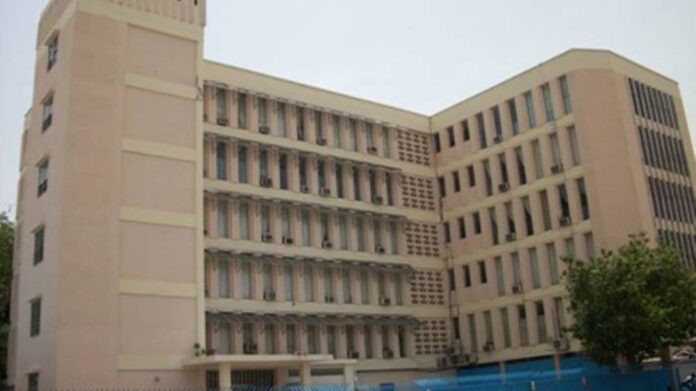By Assan Bah
The Central Bank of The Gambia has forecast a 6.5 percent expansion of the national economy in 2025, citing improvements in public infrastructure, tourism, financial services, and telecommunications as key drivers of the anticipated growth. However, the Bank cautioned that ongoing global risks—such as commodity price volatility, geopolitical tensions, and climate-related disruptions—could dampen the country’s outlook.
Governor Buah Saidy presented the projections on Wednesday during the Monetary Policy Committee’s quarterly press briefing, noting that the economy remains on a positive trajectory following a real GDP growth of 5.3 percent in 2024, an increase from the 5.0 percent registered the previous year. He said growth was driven by strong performance in the services and industry sectors, though agriculture contracted by 1.1 percent due to erratic rainfall.
“On the domestic front, the Gambian economy is expected to maintain its growth momentum in 2025 and over the medium term,” Saidy said. “But vulnerabilities remain, particularly in the face of global trade fragmentation and climate impacts.”
The Bank’s business sentiment survey indicated cautious optimism among firms, with expectations of gradual improvement in the coming months. Annual money supply grew by 11.3 percent in March 2025, up from 9.4 percent in 2024, largely driven by net foreign assets. Credit to the private sector expanded by 15.1 percent year-on-year, though this marked a slowdown compared to 19.3 percent in March 2024.
Inflation has begun to ease, dropping to 8.1 percent in April 2025 from 9.1 percent in March—the lowest level since early 2023. Food inflation slowed to 8.8 percent, aided by better domestic supply and declining global food prices. Non-food inflation dropped to 7.4 percent, attributed to falling oil prices and transportation costs. Still, core inflation rose to 6.9 percent from 5.7 percent in March, reflecting persistent cost pressures in housing and services.
The Bank also reported improved external sector indicators. The current account deficit narrowed to $13.2 million (0.6 percent of GDP) in Q1 2025 from $21.1 million (0.9 percent) in Q4 2024. The trade deficit fell to $248.1 million from $297.1 million, supported by rising tourism earnings, steady remittances, and reduced electricity imports.
Private remittances rose to $207.9 million in Q1 2025—up from $187.2 million the previous quarter—with the United States accounting for over 26 percent of inflows. Foreign exchange market activity increased to $670.1 million from $600.9 million year-on-year.
“The domestic foreign exchange market continues to function smoothly with robust volumes,” Saidy said, noting that the Central Bank’s international reserves stood at $508.54 million as of May 2025, enough to cover more than 4.6 months of imports.
Fiscal performance also showed signs of improvement. The government’s deficit excluding grants declined to D2.7 billion (1.6 percent of GDP), while total revenue and grants grew by 14.5 percent to D8.8 billion. Domestic debt stood at D45.6 billion in March 2025, slightly down from D46.4 billion in 2024. Treasury bill rates rose from 11.3 percent in 2024 to 14.6 percent in March 2025, indicating tighter monetary policy.
Banking sector indicators remained sound. Total commercial bank assets grew to D107.6 billion in March 2025, while customer deposits increased by 1.5 percent to D67.5 billion. The capital adequacy ratio stood at 28.4 percent, and non-performing loans improved to 13.5 percent from 14.6 percent in December 2024.
The Monetary Policy Committee concluded by announcing that key policy rates would remain unchanged. The monetary policy rate (MPR) stays at 17 percent, the required reserve ratio at 13 percent, the standing deposit facility at 4 percent, and the standing lending facility at 18 percent.
“The Committee will continue to monitor developments in both the domestic and global economy in deciding its next policy steps,” the Central Bank said.


















